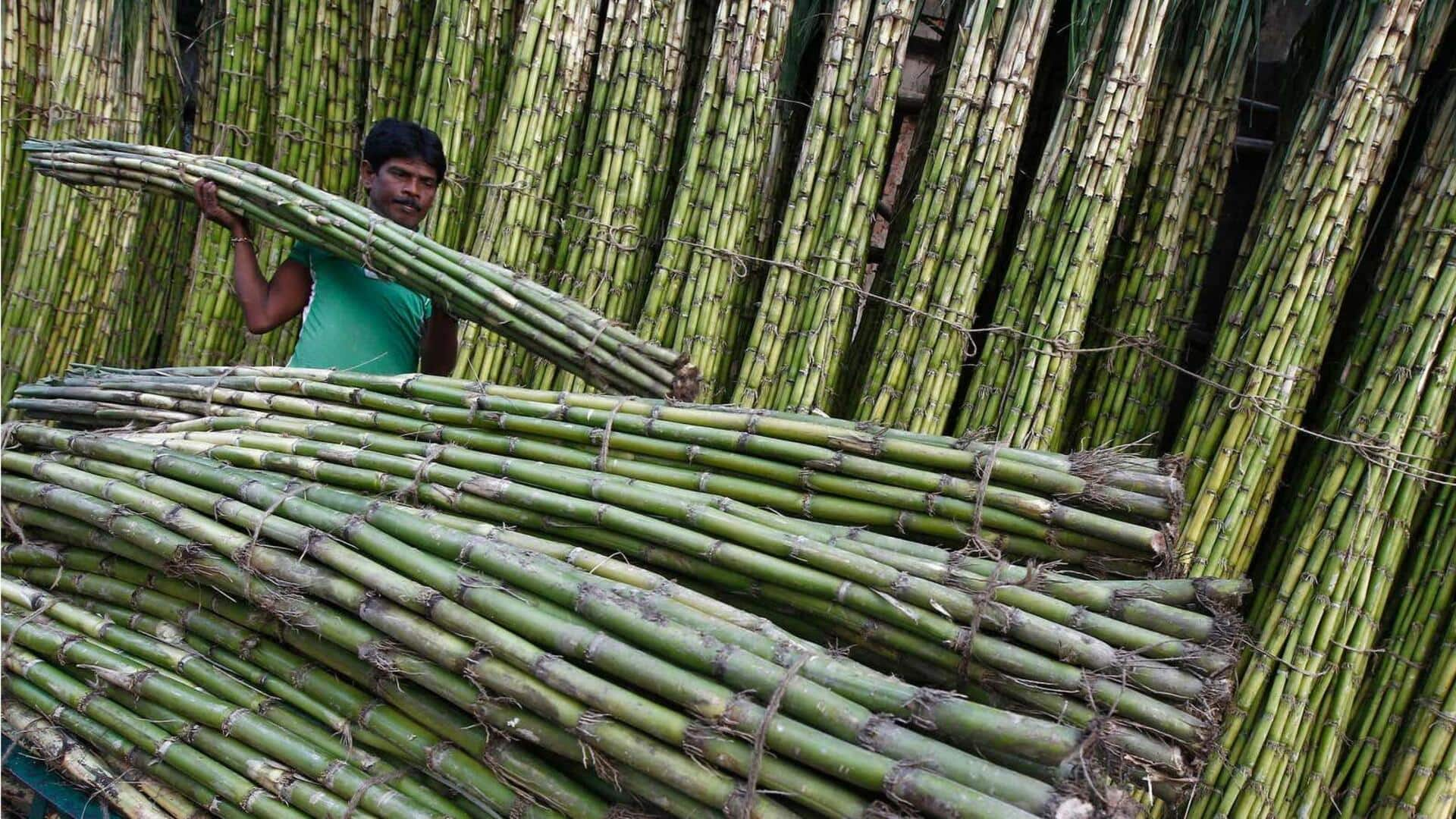
Why India has imposed 50% export duty on molasses
What's the story
In the wake of a sugarcane shortage due to unpredictable monsoon rains, the Indian government has imposed a 50% export duty on molasses, a sugarcane by-product. The move aims to balance supply and demand and ensure domestic availability. Earlier, sugar industry associations had requested export restrictions on molasses after a proposal from the food department.
Details
Molasses export duty in line with ethanol-blended petrol target
India is the leading molasses exporter, accounting for about 25% of global trade. Industry expert GK Sood believes that the 50% export duty may partially halt molasses exports to increase domestic ethanol production. As of November 30, India's ethanol production capacity was approximately 13.80 billion liter, with 8.75 billion liter being molasses-based. To reach the government's 20% blending target, about 10.16 billion liter of ethanol is needed, with additional 3.5 billion liter required for other sectors.
Insights
Sugar sector's role in achieving ethanol blending target
The decision to restrrict molasses export highlights the Indian government's commitment to increasing ethanol production and reaching its E20 target, while also addressing the domestic sugarcane shortage. By 2025-26, around 17 billion liter of ethanol production capacity must be achieved in India. Nearly half of the total ethanol requirement, or about 7 billion liters, would need to come from the sugar sector, with the remainder from food grain-based feedstock.